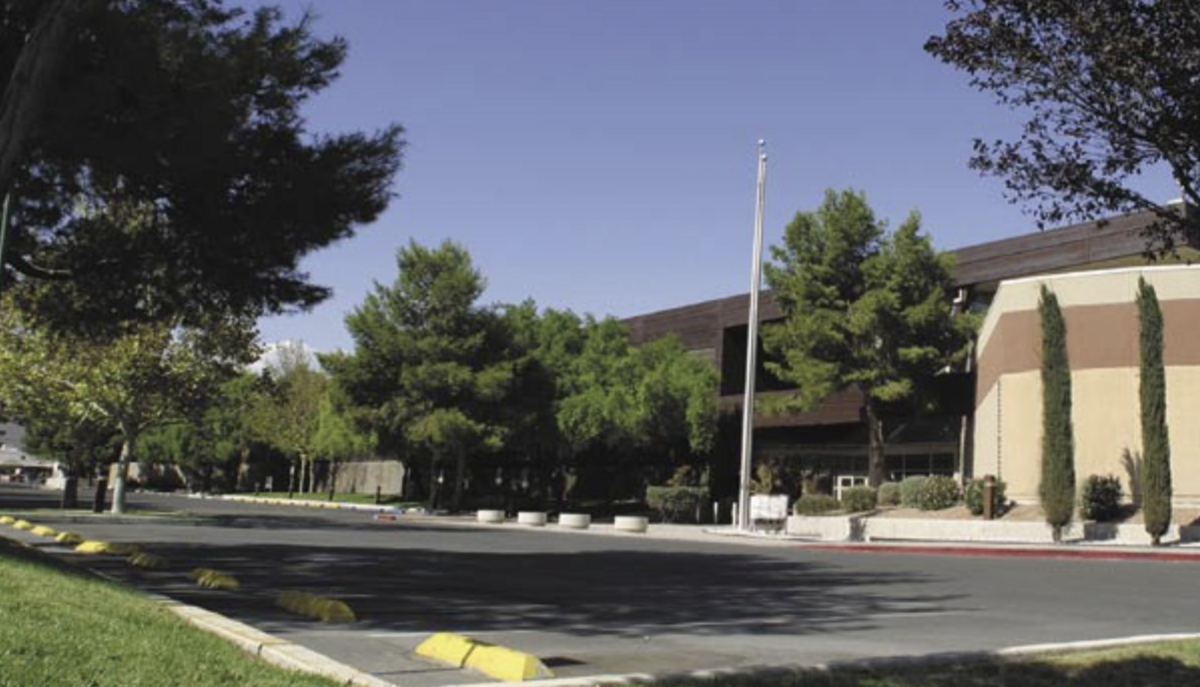With more than 27,000 students and nearly 900 faculty members, UNLV is rapidly outgrowing its 340-acre main campus. As the university continues to expand its educational programs and research facilities on the main campus, it is also developing new campuses in Southern Nevada.
The first, the Shadow Lane Campus, opened in fall 2004 and has emerged as a focal point for educational and research-related pursuits in the health, biomedical, and biotechnological sciences. The 18.2-acre campus, located in the heart of the city’s medical district, is also home to UNLV’s School of Dental Medicine.
The three-building campus provides accommodations to a variety of business, academic, and campus partners who are creating a stimulating environment for teaching, research, advanced training, and economic development opportunities. At full build-out, the campus will provide nearly 420,000 square feet of learning and research space for use by a diverse group of organizations. Currently, the campus is home to three primary occupants, including the Nevada Cancer Institute, the UNLV Biotechnology Center, and the School of Dental Medicine.
Nevada Cancer Institute
The Nevada Cancer Institute, formally launched in April 2002, is a private foundation designated by the state Legislature as the official cancer institute of Nevada. While construction of the center’s flagship facility is under way, Deputy Director Dr. David Ward is located at the Shadow Lane Campus and leads studies in the areas of cancer and genetic epidemiology. Ward, who was a distinguished member of the Yale faculty for more than 30 years and was elected to the National Academy of Sciences in 1998, will work in close collaboration with faculty and students from UNLV, the University of Nevada School of Medicine, and the University of Nevada, Reno.
UNLV Biotechnology Center
The UNLV Biotechnology Center, also located at the Shadow Lane Campus, was established with the goal of educating and training students interested in pursuing careers in the growing biotechnology field, as well as offering professionals in the industry advanced learning opportunities. Additionally, the center seeks to support new community-based biotechnology business and industry.
The center offers a variety of biotechnology and biomedical workshops, including one on forensic DNA fingerprinting. It is the first in a series of post-graduate professional development courses in the fields of forensic and microbiological sciences. Offered in partnership with the Las Vegas Metropolitan Police Department, this hands-on course provides participants with the chance to operate state-of-the-art instrumentation used in DNA processing and to analyze data using the very latest software programs.
School of Dental Medicine
Today’s dental student requires a learning environment that not only provides opportunities for interaction with patients and other health-care professionals, but also a setting that offers exposure to innovative treatment protocols and research techniques.
In order to provide UNLV students with optimal access to the latest technological advances, the UNLV School of Dental Medicine is housed in a newly renovated building on the Shadow Lane Campus. Equipped with 165 dental chairs and increased classroom, office, and patient-care space, the school serves not only as an outstanding teaching facility but also as a clinic for those in the community who need dental care the most.
To date, more than 90,000 Medicaid patients have been treated at UNLV’s dental clinics. Additionally, dental school students, faculty, and staff have provided oral cancer and oral health screenings, as well as dental and nutrition education, to more than 14,000 community members — primarily preschool, elementary, and high school students. The School of Dental Medicine will soon offer an advanced educational program that will produce Nevada’s first class of orthodontists by 2008.
What Is Biotechnology?
The application of biological knowledge and techniques to develop commercial products is a simple definition of biotechnology, which is also known as “applied biology.” It may be further defined as the use of living organisms to make a product or run a process. By this definition, the classic techniques used for plant and animal breeding, fermentation, and enzyme purification would be considered biotechnology. The term “biotechnology” is now also being used to refer to the newer tools of genetic science. In this context, biotechnology may be defined as the use of biotechnical methods to modify the genetic materials of living cells so they will produce new substances or perform new functions. Examples include recombinant DNA technology, in which a copy of a piece of DNA containing one or a few genes is transferred between organisms or “recombined” within an organism.



